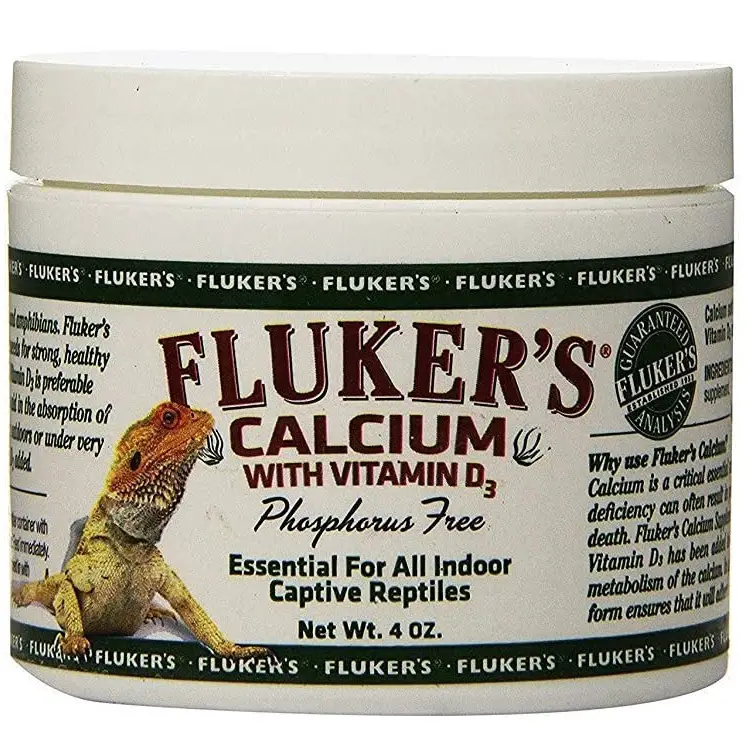
- Brand Fluker
- Size: 4-Ounce
- 3 x 2.5 x 3 inches
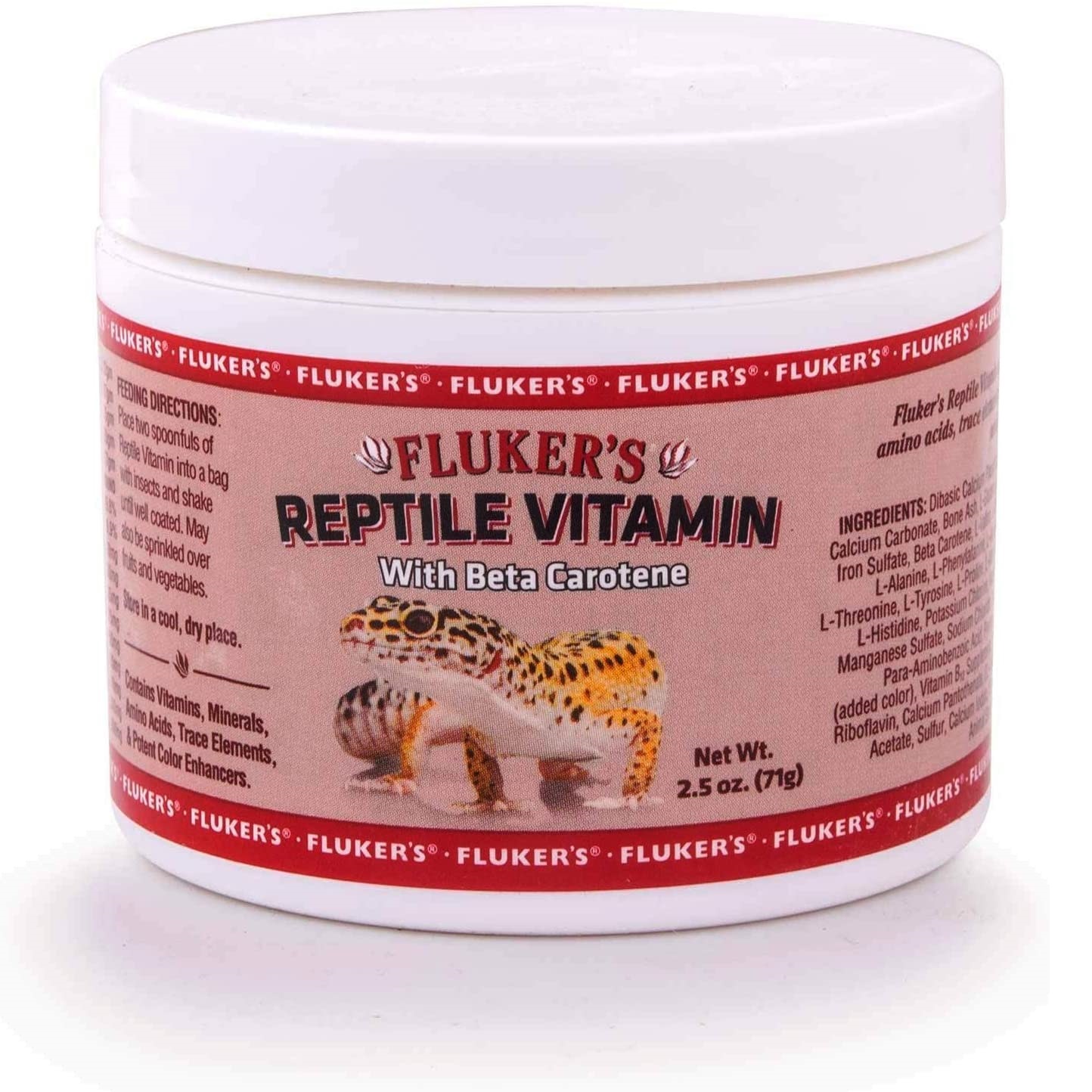
- Brand Fluker
- Reptile Supplement
- 3 x 2.5 x 3 inches
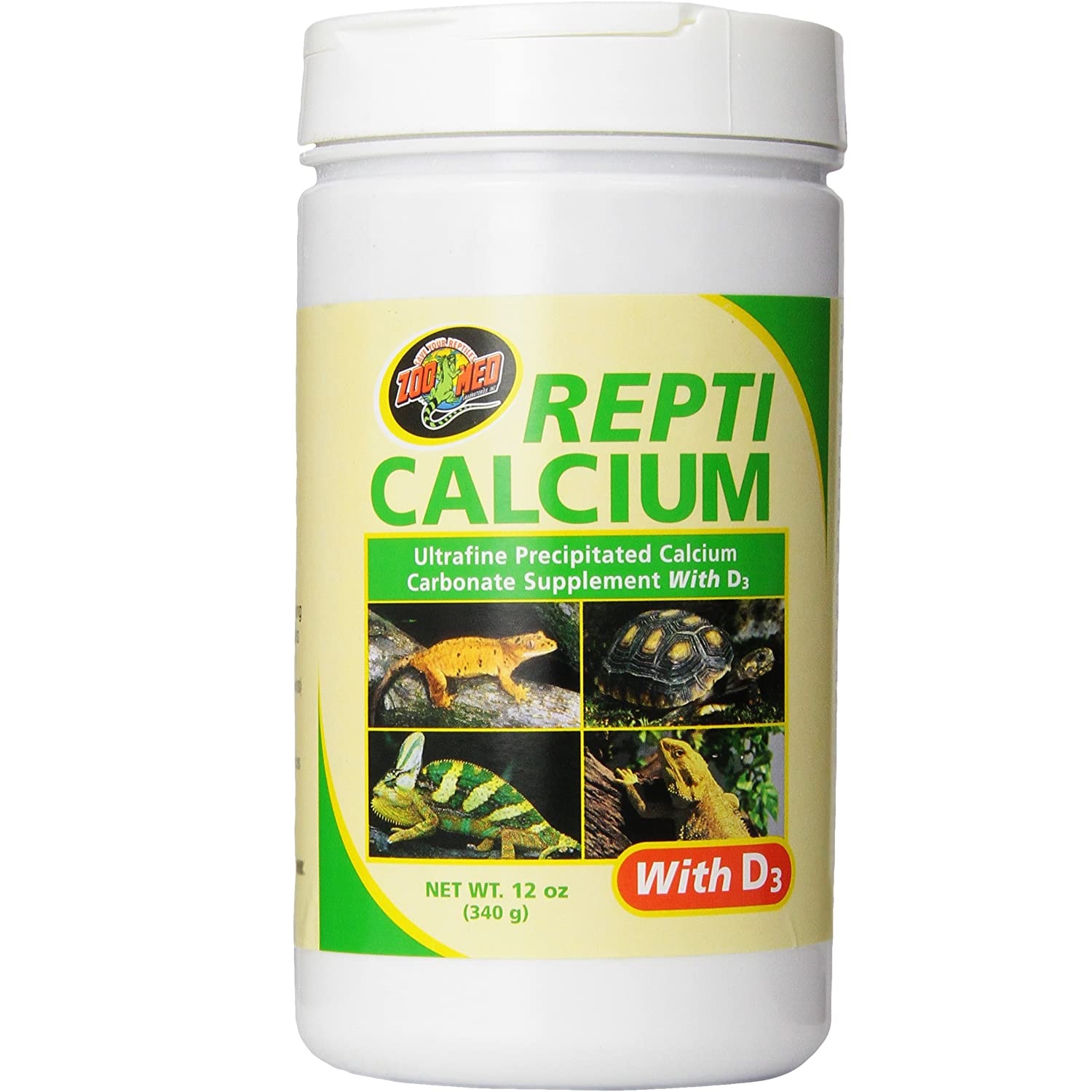
- Brand Zoo Med
- 0.42 Kilograms
- Size: 12-Ounce
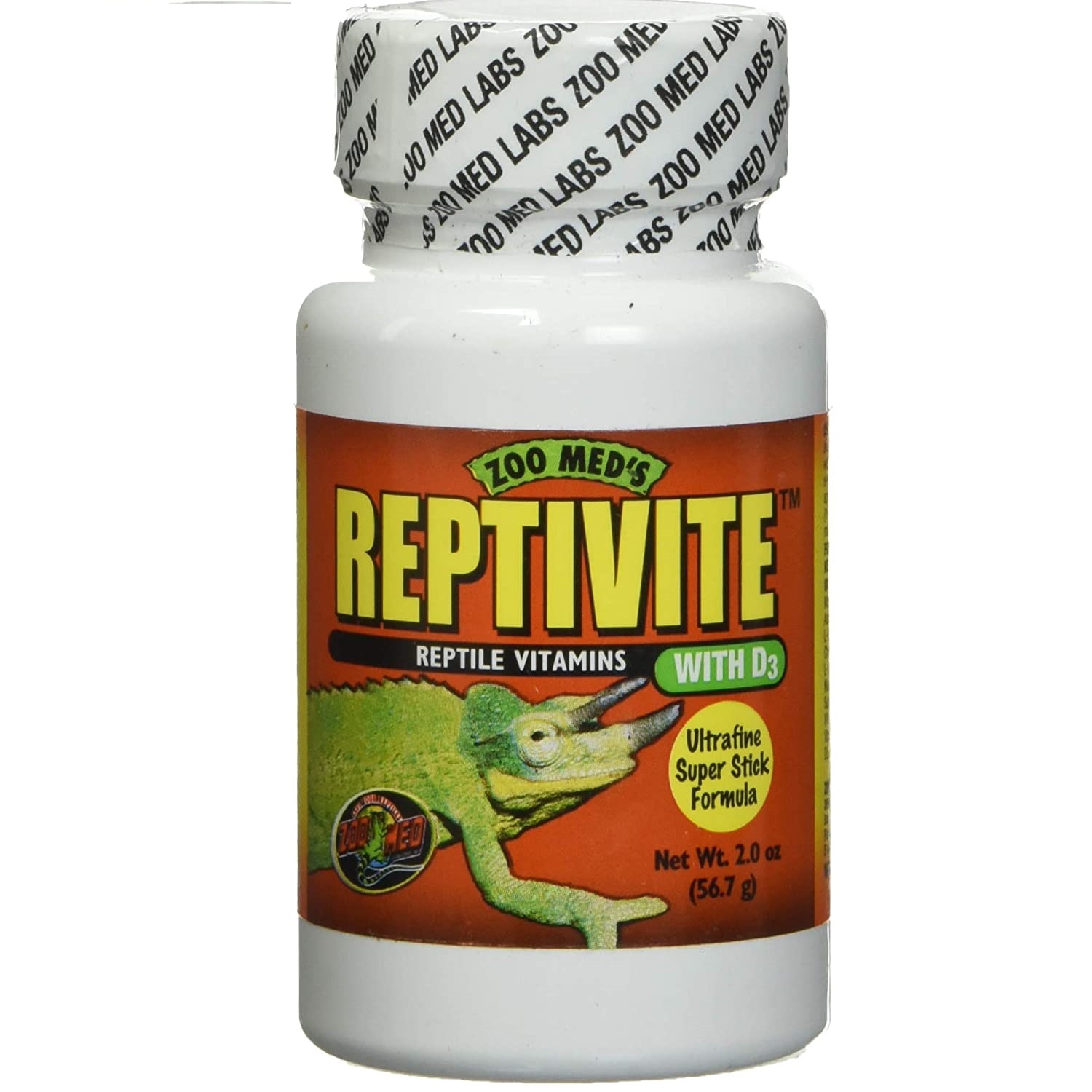
- Vitamin D3
- Size: 2-Ounce
- 1.6 Ounces
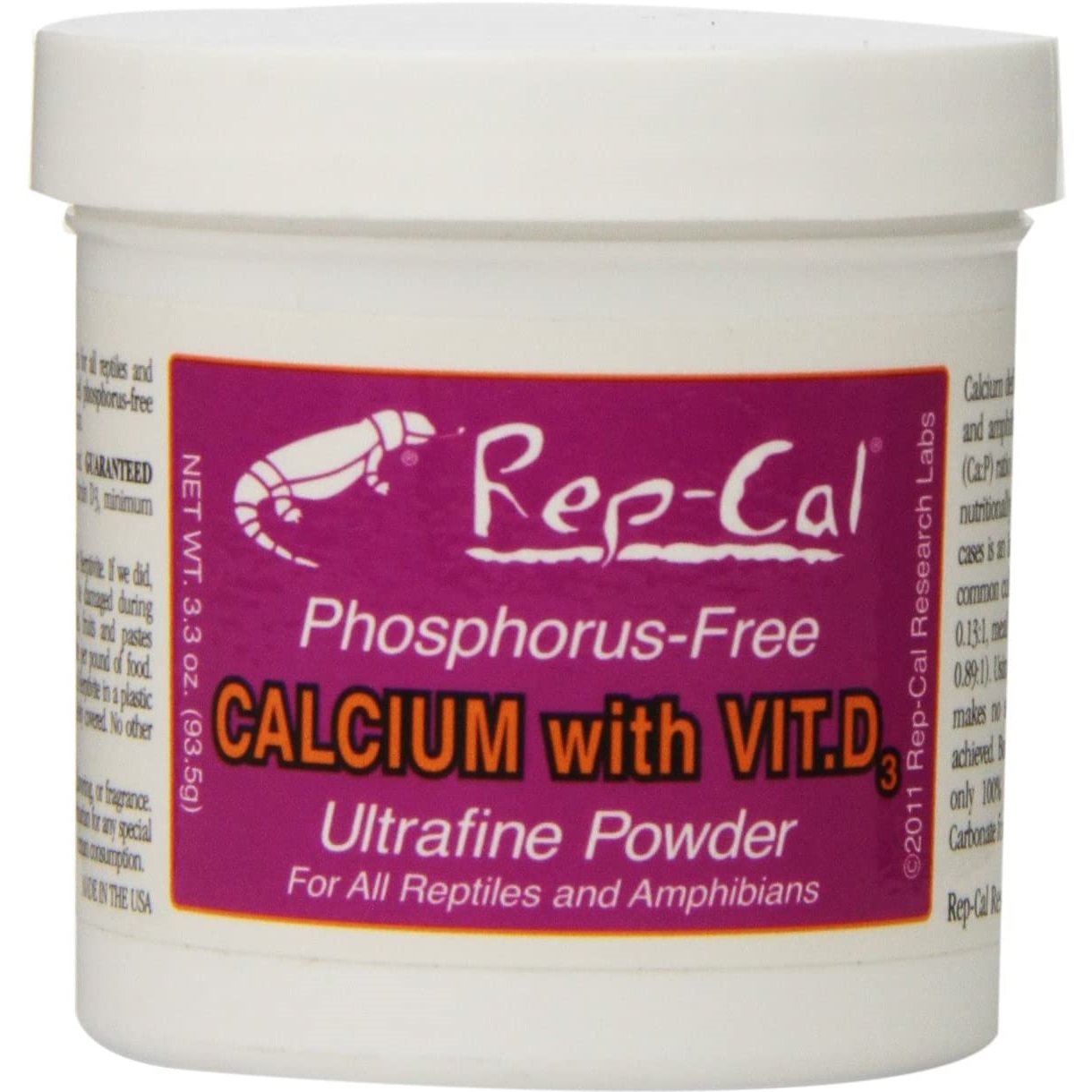
- Vitamin D3
- Size: 3.3-Ounce
- Brand Rep-Cal
Choose the Best Calcium Supplements for Bearded Dragon
Customer’s Choice: the Best Rated Calcium Supplements for Bearded Dragons
6 users answered this survey. Please help us improve this review!
Bearded dragon’s bones are extremely brittle, and a lack of calcium can be deadly. When there is not enough calcium in the diet, beardie begins to pull calcium from its bones, making them weak and causing the overall development and health to deteriorate. There are several options for providing your beardie with vital nutrients.
The simplest approach is to dust their meal and feeders with supplement powder. Before serving the food, lightly cover it with calcium powder. This will ensure that your beardie consumes the nutrients without even realizing it.
The difficulty of feeding nutrients to your beardie may increase as they get older and need more salads in their diet; having them dusted might make your beardie hesitant, causing them to reject the meal. If this is the case, you can use a calcium liquid supplement to provide important minerals to your beardie’s diet.
Bearded dragons are popular pets, and as such, their owners often have questions about their care. With so many calcium supplements on the market today, it can be difficult to know which one is best for your bearded dragon. In this article, beardies owners will discuss the benefits of different types of calcium supplements and review some of the pet owner’s favorite brands!
Fluker’s Calcium Reptile Supplement with added Vitamin D3 – the Editor’s choice!
 The Fluker brand calcium supplement is on our list because it’s an excellent product at a great price. A 4-ounce canister of this calcium supplement costs just over $2. This vitamin D3 comes from natural sources and ensures that your indoor lizard’s bones stay healthy and strong. The major disadvantage of this solution is that when you open the jar.
The Fluker brand calcium supplement is on our list because it’s an excellent product at a great price. A 4-ounce canister of this calcium supplement costs just over $2. This vitamin D3 comes from natural sources and ensures that your indoor lizard’s bones stay healthy and strong. The major disadvantage of this solution is that when you open the jar.
Fluker’s Repta calcium is a lightweight calcium supplement that delivers the usual mill calcium powder. For individuals searching for a pure form of calcium, Fluker’s Repta calcium is ideal. The packaging, on the other hand, may be a bit messy at times, but it does not affect the quality of the product itself.
This calcium supplement helps keep reptiles healthy and strong, with the added bonus of vitamin D3. This formula is available in three sizes, making it easy to get the perfect fit for your pet. Plus, it’s affordably priced so you can give your reptile the best possible care without breaking the bank.
Fluker’s Repta Vitamin Reptile Supplement – the best for content!
 Fluker’s Repta is one of the most effective calcium for bearded dragon powders because it delivers the required amount of C for healthy bones. This powder is perfect for indoor reptiles and amphibians, such as the beardie, lizard, turtle, frog, and snake.
Fluker’s Repta is one of the most effective calcium for bearded dragon powders because it delivers the required amount of C for healthy bones. This powder is perfect for indoor reptiles and amphibians, such as the beardie, lizard, turtle, frog, and snake.
It contains beta-carbonate, which ensures your pets have strong bones and live much longer. It’s also really simple to utilize. Furthermore, it may be used to treat metabolic bone diseases.
It is both effective and high quality, with a reasonable price tag.
Vitamin D3 is essential for reptiles to absorb carbonate. For safety’s sake, it’s suggested that you grind it finer. This powder also aids in the efficient digestion of food and minimizes the risks of lumpy powders causing GI problems.
This is a big hit among picky bearded dragon owners, so if your dragon isn’t a fan of the traditional calcium dust, this might be the supplement for you. This ensures that your beardie gets enough calcium since it also contains Vitamin D3 and is delicious to boot.
Zoo Med Reptile Calcium with Vitamin D3 – the best for easy application!
 Repti Calcium from Zoo Med is an ideal source of calcium for your beardie since it is void of contaminants. This calcium supplement is made up entirely of calcium carbonate without the use of an oyster shell, which makes it quite distinctive from other calcium supplements.
Repti Calcium from Zoo Med is an ideal source of calcium for your beardie since it is void of contaminants. This calcium supplement is made up entirely of calcium carbonate without the use of an oyster shell, which makes it quite distinctive from other calcium supplements.
Because it’s not manufactured from oyster shells, this is a high-quality yet low-cost pure calcium supplement. It’s also finely milled, so it’ll go down easily and won’t cause any stomach issues for your beardie.
This powder is particularly beneficial for nocturnal reptiles that do not expose themselves to UFB, such as geckos or tortoises. Metabolic bone disease in beardies is a serious danger.
The supplement is a phosphorus-free, ultra-fine option produced in the United States. Its distinctive form, as well as its high surface area per gram, improves calcium bioavailability. This choice is ideal for feeding your beardie or dusting their food with it for them to eat free of charge.
Royal Pet Supplies Inc Zoo Med Reptivite – the best protein additive!
 Zoo Med ReptiVite is a ready-to-use, all-natural powder that provides all of the required vitamins and minerals in an easy-to-feed form to allow you to quickly mix it into your gecko’s diet or sprinkle it on top of his crickets before feeding him.
Zoo Med ReptiVite is a ready-to-use, all-natural powder that provides all of the required vitamins and minerals in an easy-to-feed form to allow you to quickly mix it into your gecko’s diet or sprinkle it on top of his crickets before feeding him.
ReptiVite has a calcium-to-phosphorus ratio of 2:1, which is ideal for leopard geckos. This supplement works best when used with fresh food items like mealworms or crickets dusted just before feeding.
The Zoo Med ReptiVite is a complete amino acid, vitamin, and mineral source for reptiles. All you have to do is dust lightly on live foods, vegetables, fruits, or turtle pastes two-three times each week.
Rep-Cal SRP00200 Phosphorous-Free Calcium Powder Supplement – the best for any diet!
 Calcium is an important mineral for all reptiles and amphibians to consume. It is free of phosphorus. Furthermore, it contains Vitamin D3, which aids in the absorption of calcium. This product can assist with maintaining the proper calcium-to-phosphorus ratio.
Calcium is an important mineral for all reptiles and amphibians to consume. It is free of phosphorus. Furthermore, it contains Vitamin D3, which aids in the absorption of calcium. This product can assist with maintaining the proper calcium-to-phosphorus ratio.
You may also add the powder to fruits, vegetables, and half a spoon of herptiles. Then slowly shake it until they are all combined
It’s appropriate for all reptiles and amphibians. You won’t need to give your pet any extra supplements with this product. It is available in a 3.3-ounce size.
Rep-Cal is made of 100 percent natural oyster shell phosphorus-free powder with vitamin D3 to assist the absorption process. It contains free sugars, additives, artificial coloring, or other nasties in addition. Finally, this ultra-fine powder is enough for one person and does not require any extra supplements.
The Buyer’s Guide
Why Do Bearded Dragons Need Calcium Powder?
Vitamins and minerals are necessary for bearded dragons, just as they are for humans. Calcium deficiency can have a detrimental impact on your pet’s health.
Because your pet received very little natural light on a daily basis, they require calcium and vitamin D3 supplements to help them grow strong bones and mature properly.
If bearded dragons do not get enough calcium, they can develop a variety of illnesses. Metabolic Bone Disease (MBD) is one of the most typical issues that your beardie could get. It’s deadly if not treated correctly.
You must also give your bearded dragon calcium in conjunction with a full spectrum light that simulates ultraviolet radiation from the sun. With the sunlight, the animal will be able to obtain vitamin D3 and absorb calcium effectively [1].
How Much Calcium Do Bearded Dragons Need?
The quantity of calcium your bearded dragon requires will vary based on the age of your beardie. Calcium requirements increase as juvenile beardies mature, owing to the fact that they are still growing and developing.
Calcium is necessary throughout this time to ensure that their bones develop and grow correctly. Calcium should be given to juvenile pets at least three to four times a week.
You may need to supplement your bearded dragon’s diet with calcium at least once or twice per week in an adult [2].
A newborn bearded dragon will require a larger amount of calcium in its diet than an adult bearded dragon. This is because their bones and skeletal structure are still in the growth stages [3].
| Baby beardies | Adult beardies (1-7 years) | Old beardies (7+) | |
| Calcium per week | 4-5 times | 3-4 times | 2-3 times |
| Schedule | From Monday to Friday | Monday, Wednesday, Friday, Sunday | Monday, Wednesday, Friday |
Calcium for Baby Bearded Dragons
Because baby bearded dragons are still developing, they require considerably more calcium in their diet than adult bearded dragons. Most pet owners recommend dusting your bearded dragon’s food with calcium 4-5 times per week for little bearded dragons. This may be insects or vegetables, depending on your preferences.
Also, make sure you spread out the amount over the week. Don’t think you’re done for the week if you just dust your bearded dragon’s food five times in one day. You must dust their food once a day on various days of the week.
Calcium for Adult Bearded Dragons
Bearded dragons require less calcium as adults than as youngsters. This is because their bones are already completely formed in adulthood. Instead, they require calcium to keep their bones strong and steady.
Some experts recommend giving your adult bearded dragon a calcium supplement once a week. Dusting their crickets, worms, fruits, and vegetables, or multi-vitamin is one way to do it. Rather than feeding them three days in a row, it’s better to spread the calcium out throughout the week.
Calcium and Vitamin D3: Is Vitamin D3 Necessary in a Supplement?
Many calcium powder supplements are controversial because they include vitamin D3. Vitamin D3 has recently come under fire because it was discovered that reptiles can overdose on it, especially if taken on a daily basis.
However, despite this new know-how, reptile manufacturers continue to market calcium powder that combines calcium and vitamin D3. Of course, there are many that only sell calcium without vitamin D3, however, the same number of firms deliver it with both calcium and vitamin D3.
Vitamin D3 is not necessary for a bearded dragon’s diet since they already obtain it through their body, which is then broken down by UVB radiation.
As a result, any extra vitamin D3 might be toxic and you don’t want it.
Vitamin D3 poisoning can cause a variety of symptoms, including blocked glands, swollen glands, and breathing difficulties. Severe symptoms might require hospitalization or even death.
Since then, the supply of vitamin D has been cut off over half the world. As a result, vitamin D3 is no longer required and you should avoid calcium supplements that contain it [4].
Here is what you should remember about these two types of supplements:
1) Calcium supplements
While calcium is essential for your dragon’s health, ensuring that they get enough of it might be more difficult than you may believe. Bearded dragons, for example, are notoriously picky eaters. You may luck into a dragon who eats everything you put in front of him and finishes every meal, but it’s unlikely. As a result, determining how much calcium your dragon gets from his diet alone might be tough.
Not only that, but bearded dragons are exposed to a wider range of foods in the wild than they would be in a domestic setting — insects and plants, for example — so they naturally consume more calcium on a daily basis than they do in captivity. It also helps prevent metabolic bone disease while maintaining your dragon’s health and happiness.
2) Vitamin D3 supplements
Vitamin D3 is required for the synthesis of a number of proteins that are important for bone growth and development. Vitamin D3 obtained from natural sources, such as UVB light in their tank and sunshine exposure, helps to ensure that your baby’s bones are properly formed and function at maximum capacity.
Although this does include Vitamin D3, it isn’t quite the same as exposing your dragon to the Australian sun in the outback. Supplementing Vitamin D3 ensures that your dragon can absorb enough calcium [5].
How many supplements should you give to your beardie?
Another concern that Dragon Keepers have is the frequency with which they should give calcium and Vitamin D3 supplements:
- Calcium. Calcium supplementation is generally okay to do once a day, twice a day, three times per week, or more. Of course, always consult with your veterinarian first, particularly if you have a rescue beardie or notice any symptoms of disease (particularly MBD). Hypercalcemia (excess calcium in the body) is uncommon in bearded dragons, although it can happen and lead to illness and death. As a result, it’s always best to contact your veterinarian before starting any calcium supplementation;
- Vitamin D3. Vitamin D3 supplements should ideally be taken two to three times a week as a general guideline. Because bearded dragons require 12 hours of UVB exposure every day, they don’t require this supplement on a daily basis by law. Of course, the case for a dragon with metabolic bone disease or another illness that necessitates increased supplementation would be the exception;
- Combination supplements. You may come across supplements containing both calcium and Vitamin D3 on the market. If you took this product, for example, you would want to give your dragon three times a week to ensure that he or she receives enough of each supplement. You could also add a supplementary calcium pill to your dragon’s diet if you wish, but it isn’t necessarily something you have to do. This is a decision that only you and the veterinarian can make;
- Other vitamins. Consider giving a multivitamin, along with calcium and Vitamin D3 supplements. If you choose to do this, make sure they don’t get any more Vitamin A (unless your vet determines that your dragon is severely deficient in Vitamin A). This is because supplemental Vitamin A can rapidly build up to hazardous levels in bearded dragons, resulting in sickness including vomiting, weight loss, and tiredness. Beta carotene is a lot safer than vitamin A since it is metabolized differently by your dragon’s body [6];
Main Features:
Phosphorus Free
Because bearded dragons have a lot of phosphorus in their diet, you must use calcium powder that is phosphorus-free. The amount of phosphorus in the diet of bearded dragons varies with their age. The following table may be used to determine the quantity of phosphorus needed by bearded dragons at different ages [7].
Free of Harmful Impurity
When looking for the best calcium powder, you must be wary of any contaminants that are harmful to your bearded dragon’s health. These impurities will have a detrimental impact on your bearded dragon’s health, even causing its death.
Amount of Vitamin D
Vitamin D is required for the beardie to absorb calcium in its body, and it is deficient in beardies that don’t have enough of it. Vitamin D3 should be supplied through UVB lights if possible. However, if your beardie isn’t receiving enough, you may give it supplements containing D3. Furthermore, the amount of Vitamin D3 in a bearded dragon’s diet is influenced by his or her age and health status.
Calcium Smell
Food that smells good is always a pleasure to eat, and beardies are living creatures who follow the same principle. Also, make sure you get a calcium supplement with a scent that doesn’t upset your beardie. Otherwise, your pet will avoid the food you’re offering him.
Liquid vs. Powder Supplements: Which Is Better?
Supplements can be supplied in the form of liquid or powder, which are the two most popular ways to give your dragon vitamins at home. The injection is technically feasible, but it would only be used if a vet was treating a dragon for metabolic bone disease or another condition that required such treatment:
- Powdered calcium is quite popular among owners of beardies. It’s simple to use, and all you have to do is dust your dragon’s insects or other food with it;
- Because you must feed them through a dropper, liquid supplements may be more challenging to administer. Of course, it’s possible to mix it with water and give it a try, but there’s no way of knowing if your dragon will finish it all;
If your dragon refuses to eat or finish her or his meal, you may want to use a liquid supplement rather than a powder. A liquid may give you more control over calcium and Vitamin D3 intake in this situation. However, in many situations, the powder is faster and easier [8].
What if My Bearded Dragon Doesn’t Like Calcium Powder:
You’re Using too Much Calcium Powder
The most common reason why bearded dragons don’t like calcium powder is that they are picky eaters, just like people. You’re probably just putting way too much calcium on their food. Similar to humans, bearded dragons can be particular about what they consume. Sometimes, overdosing on calcium can irritate them. It’s easy to see why as no one wants a mouthful of dust in their mouth.
The simplest answer is to decrease the amount of calcium dust you put on your bearded dragon’s food.
They Don’t Like the Food You’re Giving Them
This is a far less common reason for the failure, but it’s still possible.
Some bearded dragons, for example, enjoy eating hornworms while others dislike them. If you’re feeding your hornworms to your bearded dragon and giving it calcium (which most experts don’t recommend; as hornworms should only be used as a special treat), and your bearded dragon doesn’t like them, it will certainly not eat them.
If you’re experiencing this, consider trying something new with the foods you apply your calcium powder to. So, if you’ve been putting it in their salad before, try putting it on their insects. If you’ve been using it on their insects, try using it on their salads instead.
You’re Not Distributing It Properly
Some new bearded dragon owners are unaware of the proper way to give their pets calcium. As a result, they will frequently attempt to place it on their lips or offer it to them directly. In contrast, they’ll try to incorporate it into their water dish and expect their dragon to retain calcium that way.
The aforementioned strategies are ineffective and should not be utilized on a healthy beardie. Because beardies don’t drink much water, they won’t be able to get enough calcium from it this way [9].
FAQ
What happens if bearded dragons don’t get enough calcium?
There may be a variety of reasons why your dragon may be suffering from calcium deficiency, including dietary issues, inadequate UVB lighting and heating, and biological ages. For example, calcium deficiency is common among dragons during biological transitions such as when they’re growing young dragons.
A beardie’s calcium deficiency can sometimes be caused by the fact that they are getting dusted insects, even though you give them dusted insects. This might be due to a lack of insect coating or a failure to adhere to the food. The concentration of calcium to phosphorus may also be an issue. The ratio of calcium to phosphorus should be 2:1 [10].
Calcium insufficiency can cause a range of problems, such as twisted limbs, issues with the jaw, difficulty walking, and difficulties in eating and digesting food. These are signs of an extremely severe sickness known as MBD.
MBD is a serious illness that causes bearded dragons to have distinct skeletal abnormalities. This can result in limping, bowed legs, lumps across the body, tremors, weakness, lack of appetite, and a lack of mobility. MBD may be caused by several factors, including insufficient UVB/UVA exposure, but it is most often induced by a calcium deficiency. Both frequently contribute to the development of MBD in bearded dragons [11].
What happens if bearded dragons get too much calcium?
Be cautious not to feed your bearded dragon too much of a diet, which is a possibility. Hypercalcemia is an overdose of calcium that is fatal in bearded dragons because it causes their muscles to calcify and harden. When there is an overabundance of vitamin D3 because of significant UVB exposure, hypercalcemia occurs frequently.
What are the worst bearded dragon calcium powders?
You must avoid the following calcium powders at all costs while picking the finest one for your beardie. First, make sure you get a finely milled calcium powder with no phosphorus element in it; it might be toxic to your beardie.
Calcium supplements that aren’t finely ground cannot adhere to the food, resulting in little consumption by your bearded dragon [12].
How do I get my bearded dragon to eat calcium?
The best approach to get bearded dragons to consume their calcium is to dust their feeders. Most bearded dragons do not object to calcium-dusted feeders as long as you apply them correctly. This implies that your feeders should be properly coated with a light, uniform layer of material.
As your bearded dragon’s diet changes throughout its life, you might want to dust their salads with calcium as well. When this happens, however, it isn’t unusual for bearded dragons to reject their salad.
Many beardies can be finicky eaters, so adding the difficulty of sprinkling them with calcium powder on top of it may be difficult enough without factoring in the additional hurdles.
In this instance, a liquid calcium supplement for bearded dragons might be useful [13]!
Does reptile calcium go bad?
Calcium in its purest form is inactive, so additives like Vitamin A and D3 lose their strength over time.
If you’re adding pure calcium with no added vitamins or minerals to your bearded dragon’s diet, there’s no need to be concerned if the product runs out. It’ll keep indefinitely as long as it’s stored in an airtight container in a cool, dark place.
However, if your calcium powder contains extra components, as most do, you’ll want to follow the expiration date on the package.
What foods have calcium for bearded dragons?
Even with excellent nutrition, providing calcium-rich meals for your bearded dragon is still crucial.
Tips for users: why not try Dubia roaches if you’re searching for a high-calcium diet? They have more protein and calcium than other feeders.
Calcium is abundant in leafy greens, vegetables, and natural foods for bearded dragons. The following choices are excellent calcium sources for bearded dragons [14]:
- Turnip greens;
- Cactus pad;
- Dandelion leaves;
- Sweet potatoes;
- Collard greens;
- Rosemary;
- Mustard greens;
- Kale;
- Grape leaves;
- Squash;
- Figs;
- Blackberries;
- Papaya;
The importance of calcium and vitamin D3 in your dragon’s general health and well-being cannot be overstated. By giving a balanced diet, correct UVB lighting, and appropriate supplements, you can keep your dragon happy and healthy.
Can you put calcium powder in water for bearded dragons?
However, it is important to point out that calcium powder may be found in both a powdered and liquid form.
Your dragon may drink the water, which will also cause them to absorb the calcium powder. However, this is not as simple as you would believe.
It is possible to combine calcium powder with water to provide your bearded dragon with the correct amount of calcium in their diet, but doing so correctly is difficult. The majority of the powder will be thrown away, so dusting meals is the best approach.
It’s difficult to estimate how much water your bearded dragon will drink, making it tough to determine how much calcium powder to add. While the calcium powder is eaten when the water is drunk, there is no easy method for determining the optimum proportion of powder to use.
When a bearded dragon stops consuming, many individuals use this approach in an attempt to get them to eat again. However, if your dragon has not been eating for an extended period, you are probably dealing with much more serious issues than a deficiency of vitamins and minerals.
Calcium is fat-soluble, so if your dragon hasn’t been eating any fats, it won’t be able to digest the calcium powder. Some bearded dragons refuse to drink water that has been mixed with calcium powder.
When water is restricted, dragons can develop all kinds of issues with dehydration and fluid intake. If you decide to try this approach, make sure you keep an eye on your dragon’s water consumption to ensure they continue to drink [15].
Can bearded dragons absorb calcium through their skin?
The greatest way to satisfy your bearded dragon’s calcium requirement is via veggies, as well as occasionally certain little invertebrates or worms. Your beardie will also get some vitamin D from the sun, but it won’t be enough on its own.
It’s critical to ensure that your bearded dragon gets the calcium they require. A shallow bath in warm water with calcium powder sprinkled on it is all that is required. It’s sometimes suggested to give your beardie a “calcium bath”. A few droplets of liquid calcium added to a water source are beneficial, but the dragon will only be hydrated or benefit if the water is consumed orally since bearded dragons can’t absorb calcium through their skin.
If calcium powder is hard to come by, you can also use crushed-up animal bones! They’ll soak in the water for around an hour, and then when they’re done soaking, they’ll have a beautiful glossy shell!
You can also put a few rocks in the water for them to crawl on for added texture and exercise. This is an amusing method to give your pet a bath, and they get the bonus of soaking in calcium at the same time!
A calcium bath is not required for all bearded dragons, however. If your bearded dragon is young (less than three inches long), has a female dragon that has never had eggs, or if it’s a male dragon under three years old with no visible droppings, he doesn’t need one.
If your adult beardie is over 3 inches long and has been producing eggs frequently, it won’t be able to obtain enough nutrition from what you feed them. Giving them a calcium bath will help them stay healthy than just feeding with food alone [16].
How long can my pet stay without calcium?
A bearded dragon is a tough animal that can survive for up to two weeks without calcium. This, however, is not recommended. Calcium is important for the health of a bearded dragon. Also, keep in mind that depriving a bearded dragon of calcium for longer than two weeks might have irreversible consequences [17].
How much liquid calcium should a bearded dragon have?
The amount depends on the picked product.
For example, when it comes to Fluker’s Liquid Calcium Reptile Supplement, shake it well before using. A single half-teaspoon per 8 ounces of drinking water is equivalent to 1/2 teaspoon daily in aquatic bowls. Add to meals: 1/2 teaspoon three times each week.
The good news is that there are several methods to use liquid calcium. Each manufacturer offers its own usage instructions. Make sure you read the directions to guarantee you give your pet the appropriate dosages [18]:
- Add it to food. Liquid calcium can be sprayed directly on your bearded dragon’s diet before feeding, much as you would dust crickets. Allow it to settle for a few seconds before offering it. It may also be used on spinach, crickets, mealworms, and mice;
- Add directly to the pet’s mouth. The next alternative is to put the calcium directly into your pet’s mouth, as directed. It generally takes three droplets of calcium straight into the mouth. This is an effective approach to ensure that your dog receives enough calcium to remain strong and healthy;
- Add it to water. You may also give your pet water with liquid calcium every day. This is done in a fraction of the amount recommended on the bottle, which is around half a teaspoon. Keep in mind that you must always administer the right dose based on your bearded dragon’s size and weight;
What should a bearded dragon eat daily?
There are a few meals and liquids that should be incorporated into your bearded dragon’s daily diet [19]:
- Protein. Live mealworms, waxworms, and crickets that have been “gut-loaded” are popular among bearded dragons. This means they’ve been fed lizard-friendly vitamins and minerals. Young beardies should be fed once a day. Adult males only need to eat every two days. If beardies don’t consume the whole of their food, try feeding them less the next time around;
- Calcium. Dust your bearded dragon’s live food with a calcium supplement twice a week;
- Vegetables. The diet of a young beardie should include 25% vegetables, while that of an adult should contain half. Kale, collard greens, mustard greens, zucchini, and shredded carrots are some of the beardies’ favorite veggies;
- Packaged food. A beardie’s diet should contain a variety of foods. Many manufacturers produce high-protein infant lizards and lower-protein adult beardies;
- Water. If your beardie refuses to drink from a shallow dish of water in their habitat, lightly mist their fruits and vegetables with clean water;
Useful Video: Supplementation 101 (Reptiles & Amphibians)
Final thoughts
We’d like to thank you again for reading this article. Now that you know about the different types of calcium supplements, it should be much easier to make an informed decision on which one is best for your bearded dragon! If you have any questions or comments, please leave them below and we will get back to you as soon as possible. Thanks again for spending time with us today – hopefully, this guide was informative!
References:
- https://oddlycutepets.com/best-calcium-supplements-for-bearded-dragons/
- https://oddlycutepets.com/best-calcium-supplements-for-bearded-dragons/
- https://reptilemaniac.com/5-best-bearded-dragon-calcium-powders/
- https://reptilemaniac.com/5-best-bearded-dragon-calcium-powders/
- https://dragonsdiet.com/blogs/dragon-care/bearded-dragons-calcium-and-vitamin-d3-everything-you-need-to-know
- https://dragonsdiet.com/blogs/dragon-care/bearded-dragons-calcium-and-vitamin-d3-everything-you-need-to-know
- https://mybeardies.com/best-calcium-powders-for-bearded-dragons/
- https://dragonsdiet.com/blogs/dragon-care/bearded-dragons-calcium-and-vitamin-d3-everything-you-need-to-know
- https://reptilemaniac.com/5-best-bearded-dragon-calcium-powders/
- https://thepetenthusiast.com/bearded-dragon-calcium/
- https://reptilemaniac.com/5-best-bearded-dragon-calcium-powders/
- https://mybeardies.com/best-calcium-powders-for-bearded-dragons/#Worst_bearded_dragon_calcium_powder
- https://reptile.guide/best-calcium-powder-bearded-dragon/#How-Do-I-Get-My-Bearded-Dragon-to-Eat-Calcium
- https://dragonsdiet.com/blogs/dragon-care/bearded-dragons-calcium-and-vitamin-d3-everything-you-need-to-know
- https://totalbeardeddragon.com/do-bearded-dragons-need-calcium-powder/
- https://peticle.com/can-you-give-your-bearded-dragon-a-calcium-bath/
- https://beardeddragontank.com/how-long-can-bearded-dragons-go-without-calcium
- https://thepetenthusiast.com/bearded-dragon-liquid-calcium/
- https://www.petsmart.com/learning-center/reptile-care/what-should-i-feed-my-bearded-dragon/A0064.html

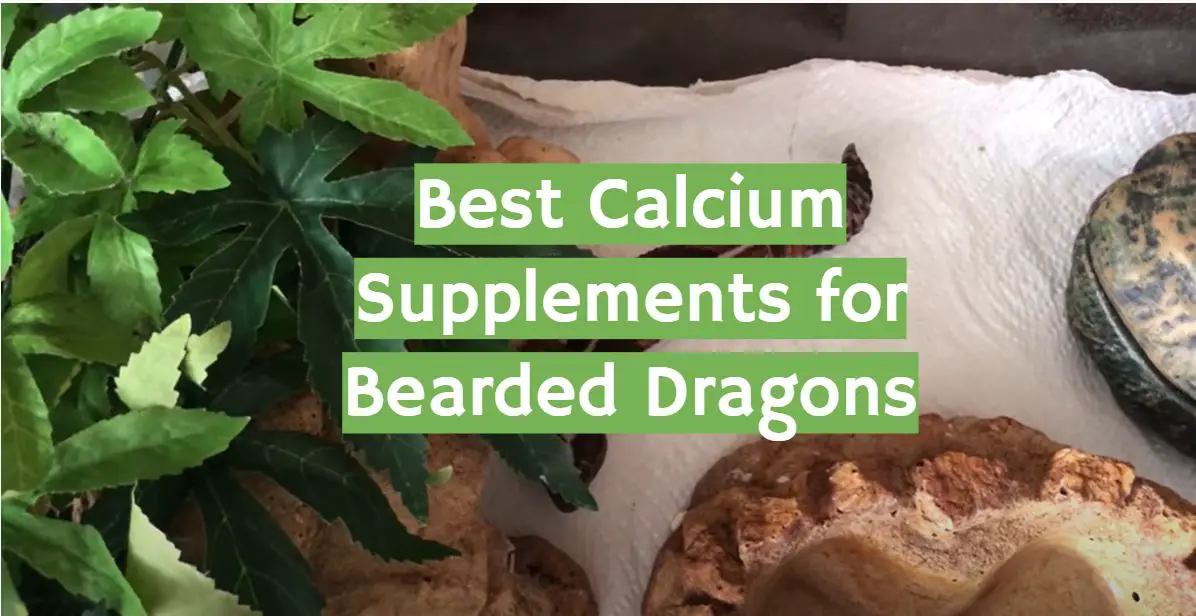
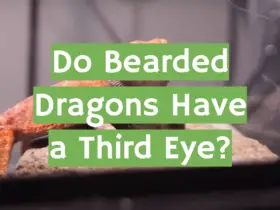



Leave a Review